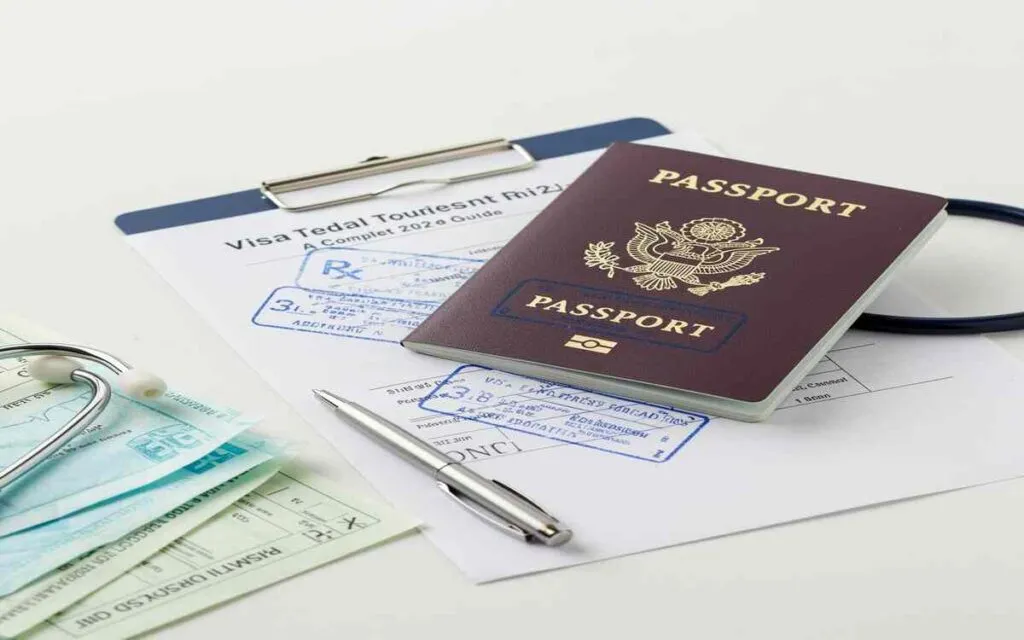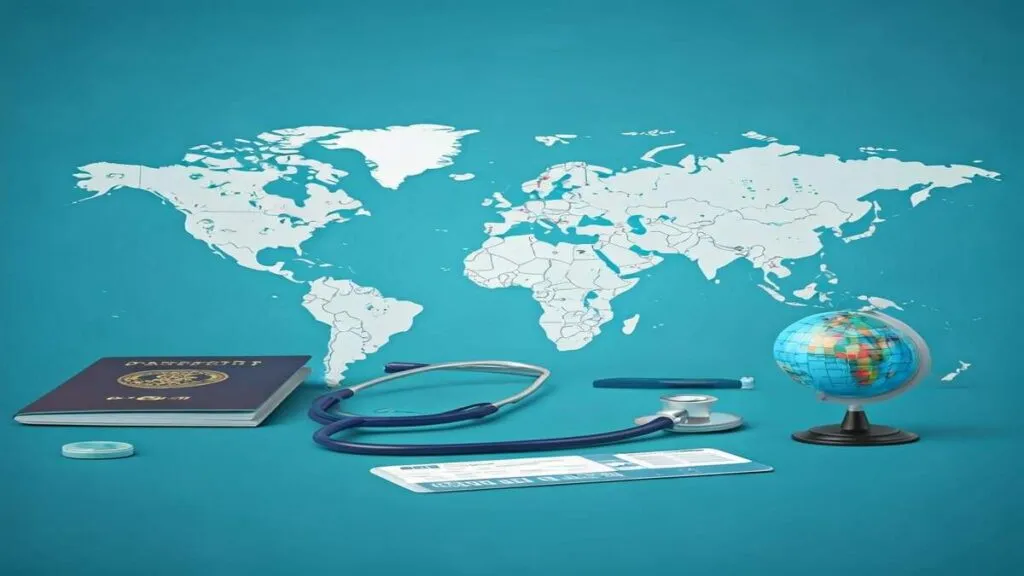
Understanding Visa Requirements for Medical Tourists is essential for anyone planning to travel abroad for healthcare. Whether you’re seeking advanced surgery, specialized treatment, or wellness programs, the right visa ensures a smooth journey and legal entry into your destination country. However, before you pack your bags and book that hospital appointment overseas, there’s one essential step that could make or break your medical journey: getting the right visa.
Visa rules for medical travelers can be surprisingly different from regular tourist visas, and missing a requirement could lead to delays, extra costs, or even denied entry. This article covers all the essential visa information for medical travelers in 2025, allowing you to prioritize your treatment instead of getting bogged down in paperwork.
Contents
Why Visa Requirements for Medical Tourists Matter in 2025?
When you travel for healthcare, your purpose of visit is not purely leisure — and immigration authorities treat that differently. Many countries require a medical visa or a special annotation on your tourist visa confirming you’re entering for treatment.
Not obtaining the appropriate visa may lead to:
- Entry denial at the airport
- Shorter stay limits that don’t cover recovery time
- Extending your visa because of ongoing medical treatment can sometimes present difficulties.
- Legal or insurance complications
Before you begin booking flights or medical appointments, review the official Visa Requirements for Medical Tourists for your chosen destination. If you’re still deciding where to go, explore our list of Top Countries for Medical Travel in 2025.
Types of Visas for Medical Tourists

Depending on your destination, you might encounter these common visa categories:
a) Medical Visa
A visa specifically intended for patients seeking medical care abroad.
Countries offering this: India, Thailand, UAE, Saudi Arabia, Turkey, etc.
Typical features:
- Allows multiple entries in some cases
- Longer stays than tourist visas (often 60–180 days)
- Submission of documentation such as a confirmed medical appointment or treatment itinerary is typically mandatory.
b) Tourist Visa with Medical Purpose
Some countries don’t have a separate medical visa but allow treatment on a tourist visa if you declare your purpose honestly.
Examples: Many European Schengen states, Singapore, Malaysia, South Korea.
Important: State “medical treatment” as your reason for visit and provide supporting documents.
c) Long-Term Medical Stay Permits
For extensive treatments like rehabilitation, organ transplants, or cancer care.
Examples: Germany, UK, USA (B-2 Visa for medical reasons).
Many visa applications require proof that you can financially support both your healthcare and day-to-day expenses while abroad.
Common Visa Requirements for Medical Tourists
While exact rules vary, most countries will ask for these:
| Requirement | Why It’s Needed |
|---|---|
| Valid Passport (6+ months validity) | Ensures your travel documents won’t expire during treatment |
| Completed Visa Application Form | Official request for entry |
| Passport-Sized Photos | Standard identification requirement |
| Medical Appointment Letter | Confirms your treatment is pre-arranged |
| Medical Diagnosis/Recommendation Letter | Shows necessity of treatment abroad |
| Proof of Financial Means | Demonstrates you can pay for care and living expenses |
| Travel Insurance (sometimes mandatory) | Covers emergencies and sometimes complications |
| Flight Itinerary | Proof of travel plan |
| Accommodation Details | Hotel booking or hospital stay confirmation |
| Visa Fee Payment Receipt | Proof you’ve paid application fees |
How to Apply for a Medical Visa – Step-by-Step
Here’s a general process most countries follow:
- Research Visa Type & Requirements
Visit the official embassy or consulate website — never rely solely on third-party blogs or hearsay. - Gather Medical Documents
- Letter from your doctor/hospital at home
- Acceptance letter from the treatment facility abroad
- Treatment cost estimate (often required for financial proof)
- Show Proof of Funds
Bank statements, fixed deposits, or sponsorship letters. - Purchase Travel Insurance (if required)
Some policies even cover medical tourism specifically. - Complete the Application & Pay Fees
While some countries accept visa applications online, others mandate that you apply in person. - Attend an Interview (if needed)
Be ready to explain your treatment plan, costs, and why it’s not available at home. - Wait for Processing & Collect Your Visa
Visa approval times vary widely by destination, often taking anywhere from two days up to over a month.
Visa Requirements for Medical Tourists in Popular Destinations (2025 Overview)

| Destination | Visa Type | Key Notes |
|---|---|---|
| India | Medical Visa (e-Medical Visa available) | Max stay 60 days per entry; up to 3 entries allowed; requires hospital invitation |
| Thailand | Tourist or Non-Immigrant “O” Visa for medical reasons | Certain hospitals can sponsor your visa |
| Turkey | Medical Visa or tourist visa with medical declaration | Requires Ministry of Health-approved facility invitation |
| Germany | Schengen Visa (medical treatment purpose) | Must prove ability to pay full treatment costs |
| UAE | Patient Entry Permit (short- or long-term) | Hospitals often handle application |
| Malaysia | Tourist visa allowed for medical treatment | Malaysia Healthcare Travel Council assists patients |
| USA | B-2 Visa for medical purposes | Proof of treatment cost coverage required |
Tips to Meet Visa Requirements for Medical Tourists Smoothly
- Begin the process well in advance by submitting your application at least four to six weeks prior to your planned travel date.
- Be Honest — Never hide your medical purpose; immigration can verify.
- Keep Copies — Digital and printed versions of all documents.
- Work With the Hospital’s International Patient Department — They often know the visa process best.
- Consider a Medical Tourism Facilitator — Helpful for complex cases.
- Prepare for Follow-Up Requests — Embassies may ask for extra details.
Extending Your Stay: Visa Requirements for Medical Tourists Needing More Time
Sometimes treatment takes longer than expected. Most countries allow visa extensions on medical grounds, but you’ll need:
- An official letter from the hospital detailing the medical reasons for an extended stay.
- Updated proof of financial means
- Application before your current visa expires
Extensions are usually granted for genuine medical needs and supported by official medical documentation.
Special Considerations in Visa Requirements for Medical Tourists
a) Travel Companions
Some countries allow medical attendant visas so family or friends can accompany you. Example: India’s Medical Attendant Visa.
b) Minors Receiving Treatment
If the patient is under 18, parental consent documents and guardianship proof are essential.
c) Medical Equipment
If you’re carrying devices (oxygen tanks, dialysis equipment), check import regulations beforehand.
Mistakes to Avoid When Meeting Visa Requirements for Medical Tourists
- Applying for the wrong visa type
- Providing incomplete medical documentation
- Underestimating recovery time when requesting visa duration
- Booking non-refundable travel before visa approval
- Assuming tourist visa rules apply to medical stays without checking
Final Checklist: Visa Requirements for Medical Tourists Before You Travel
✅ Valid passport (6+ months) (Check passport validity rules here)
✅ Chosen visa type confirmed
✅ Appointment letter from hospital abroad
✅ Medical report from home country
✅ Proof of funds
✅ Accommodation & travel booking (if required)
✅ Travel insurance (if required)
✅ Visa application form & fees ready
Frequently Asked Questions (FAQs) About Visa Requirements for Medical Tourists
1. Do I always need a special visa for medical treatment abroad?
Not always. Some countries allow treatment under a tourist visa if you declare your purpose and have supporting documents. Others require a dedicated medical visa — so always check the specific rules for your destination.
2. What is the typical processing time for a medical visa?
Processing time varies from 2 days to 4 weeks depending on the country, your nationality, and whether an interview is required. It’s advisable to submit your application around 4 to 6 weeks before your planned travel date.
3. Can I bring a family member or friend with me?
Yes. Many countries allow an attendant visa or companion entry permit for family members traveling with the patient. They may need to apply separately but can often submit together with the patient’s application.
4. What if my medical treatment takes longer than my visa allows?
You can usually apply for a visa extension on medical grounds before your current visa expires. You’ll need updated medical reports and proof that you can support your extended stay.
5. Is travel insurance mandatory for a medical visa?
Not in all countries, but it’s highly recommended. Some destinations — like parts of Europe — require proof of insurance that covers medical expenses and emergencies.
6. Can I receive emergency treatment without a visa?
If you’re already abroad, you may receive emergency care without a medical visa. But for planned treatment, immigration authorities typically require the correct visa before you travel.
7. What are the next steps if my visa application gets denied?
You’ll usually receive a refusal letter explaining why. Common reasons include incomplete documentation, insufficient funds, or unclear medical purpose. You can reapply after correcting the issues.
8. Are there countries with visa-free medical tourism?
Yes, if your passport allows visa-free entry to the destination, you can often receive treatment without a special visa. Even then, you will be required to demonstrate the reason for your visit when going through immigration.
9. Do I need to translate my medical documents?
If your destination country’s official language is different, you may need certified translations of your medical reports and hospital letters.
10. Will my visa cover follow-up visits in the future?
Usually, no. If you need follow-up treatment, you may need to apply for a new visa unless you have a multi-entry permit.
Conclusion
Securing the right visa is just as important as choosing the right hospital or doctor when planning your medical trip abroad. The process may feel overwhelming, but with the right preparation — gathering documents early, being transparent about your medical purpose, and consulting official embassy sources — you can avoid costly delays or last-minute surprises.
In 2025, medical tourism continues to grow worldwide, and so do the regulations that govern it. Taking time to understand the visa requirements of your destination country ensures you can focus fully on what matters most: your health, treatment, and recovery.
✔️ Key takeaway: Apply early, double-check embassy guidelines, and keep all supporting documents ready. With the right visa in hand, your journey becomes smoother, safer, and stress-free. If you’re planning a medical trip, also explore our guide on How to Plan a Safe and Successful Medical Trip Abroad for practical tips beyond visas.
References
- Government of India — eMedical Visa Guidelines
- U.S. Department of State — B-2 Visa for Medical Treatment
- Thailand Ministry of Foreign Affairs — Visa Information
- Malaysia Healthcare Travel Council
- European Commission — Schengen Visa Rules
Disclaimer: This guide is for informational purposes only and does not replace professional legal or immigration advice. Visa rules can change frequently. Always confirm requirements with the embassy or consulate of your destination country before traveling.
Founder of My Health Tech Talk. He is a health informatics professional, researcher, and graduate assistant with a passion for digital health and innovation, medical tourism and health tips. Learn more about author and his mission on the About Us page


